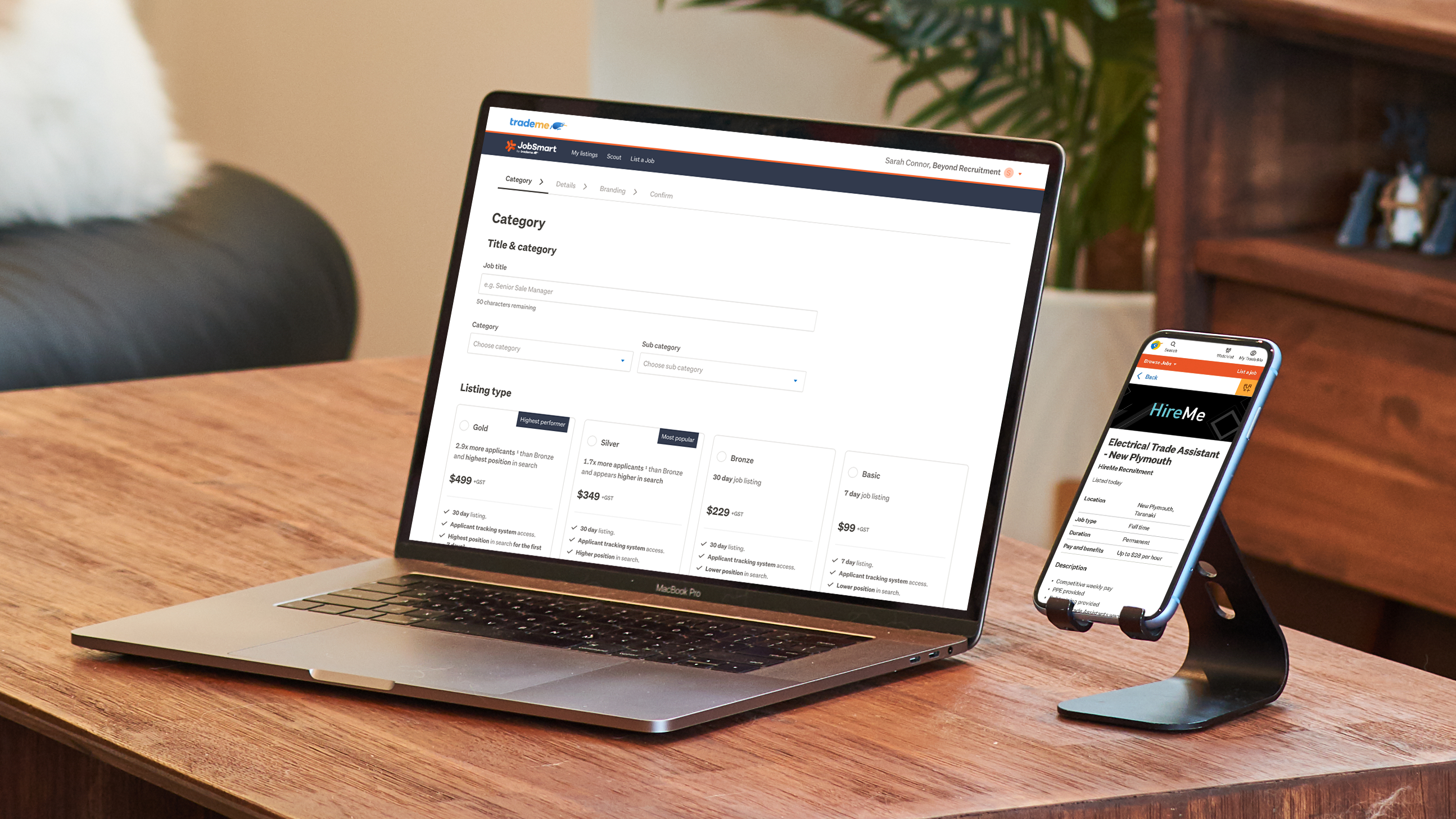Advertisers advice
How to attract top talent: tips for NZ businesses
Here’s how to ensure top talent chooses you, and not your rivals.
People are the backbone of successful businesses, so attracting the very best of the best should be an absolute priority in your next hiring cycle.
We get it, this is easier said than done. But hiring good staff isn’t rocket science, you just need to follow some tried and tested techniques for success. Here they are:
How to attract top talent to your business
1. Know what a ‘good hire’ means to you
There’s no one-size-fits-all when it comes to model employees, and you’ve got no hope of finding the perfect fit for your organisation if you don’t know what they (metaphorically) look like.
Before you begin drafting your job ad, sit down and brainstorm exactly who you want. Think about:
Every hire counts, so you need to be attracting the best.
- Your business goals: and what you need to do to achieve them.
- Why you’re hiring: following from that, how will this new person contribute to your objectives? What skill sets will they need?
- Your company culture and values: every employee contributes (or detracts) from your company culture, so what character traits and values would the ideal candidate have?
2. Write a great job ad
Writing the perfect job ad is a topic in its own right, but consider:
- Searchability: make sure you’ve chosen the most logical category for your ad, and that you’ve included relevant keywords in the title, short summary and the job description.
- Key info: incomplete or inaccurate job ads is the second biggest frustration Kiwis face when job hunting, according to our 2020 Job Hunter Survey.
- Formatting: if your ad is hard to follow, readers won’t follow it – simple as. In particular, avoid huge chunks of unbroken text.
3. Appreciate what Kiwis look for in a job
Think it’s all about pay? Be prepared to think again. In the Job Hunter Survey, salary didn’t even make the top five when we asked New Zealanders what is ‘very important’ to their idea of an ideal role. They were:
- Job security: 58%.
- Work/life balance: 57%.
- Feeling valued: 54%.
- Development opportunities: 49%.
- Finding a company that’s a ‘good fit’: 49%.
- Their day-to-day duties: 48%.
Understanding that great candidates are going to look for more than just a large number of zeros is essential for creating an opportunity that really grabs them. By offering non-monetary perks such as flexiwork or access to training courses, you can show prospective staff you’re a proactive employer who understands there’s more to their lives than work.
Bonus tip: go even further by personalising your perks. Every job hunter is different, and values different things. For example, if you pick up during the course of a job interview that a candidate would really value the option to work from home, make this part of your offer. If you can do this without them even having to ask, you’ll immediately go up in their opinions.
Work/life balance is important to Kiwi job hunters.
4. Put culture front and centre
Four of the above job hunter priorities (work/life balance, feeling valued, development opportunities and finding a ‘good fit’) come under the company culture umbrella.
Not only do you need to create a great company culture, you also need to get the word out. Job hunters are keen to research your culture as they go through the application process, so make it easy for them. A couple of ideas include:
- Using your website: create a dedicated webpage, ideally under a ‘Careers’ section on your site, to talk about the culture, mission and values of your organisation. For inspiration, here’s what we’ve done at Trade Me
- Encouraging employee ambassadors: if you have existing staff who post on social media about how much they love working for your organisation, encourage them! This authentic advertising is great exposure. You just need to build a culture worth shouting about first!
5. Show you offer growth opportunities
You want to hire ambitious, driven, hard working staff, and these are the people most likely to ask about development opportunities – so make sure you’ve got good answers.
This doesn’t necessarily mean promotion or payrsies, and other good options include:
- Free access to paid courses.
- Team or departmental workshops.
- Coaching from senior staff.
- The ability to define their own personal goals.
- Allowing staff to take on additional responsibilities.
With these tips in mind, you’ll be well on your way to recruiting the best talent for your business. Remember, you need to impress just as much as they do, and it’s worth investing that extra bit of time (and sometimes money) to ensure you end up with a stellar new employee.
Other articles you might like



.png)



